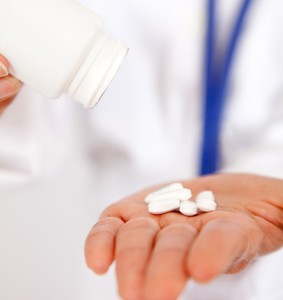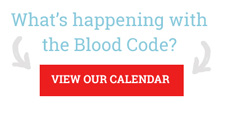Are nutritional supplements getting a bum rap? Or is there truth in the recent report? The combined efforts of FRONTLINE, The New York Times and the Canadian Broadcasting Corporation illuminated the problems inherent within the regulation of the supplement industry. Let me tell you how I scrutinize supplements in my clinical practice and why I and my family take nutritional supplements.
I am a naturopathic doctor in practice in Maine for the past 22 years and I have consulted and worked for many nutritional and herbal supplement companies over the past twenty-five years. I toured dozens of facilities to view the steps taken for ingredient quality, safety, and verification. Prior to 2007, the FDA did not proactively regulate the manufacturing practices of nutritional supplement companies, and I saw the difference between companies that voluntarily met higher-quality criteria, at that time called good manufacturing practices (GMP), and those that did not. The FDA now oversees the good manufacturing practices but, as FRONTLINE discovered, they do not have the resources to enforce or investigate the many companies in the marketplace. The fact is, there are companies that still meet higher quality standards than the norm, and scientific inquiry continues to pursue answers about which supplements offer valid health improvement.
To assure safety and accountability for the nutritional supplements I recommend, here are three rules I follow:
- Avoid products that have proprietary blends. When I call a company to get the actual amount of each ingredient on a label, I want actual numbers—not to be told that it’s a trade secret. These are supplements designed to meet a science-driven clinical goal—full disclosure is imperative.
- Avoid over-labeled products: As a health-care provider, I need to know the actual manufacturer of a supplement—I want the manufacturer to be accountable. The vast majority of multi-level marketed (MLM) products and direct-marketed items are over-labeled products from other hidden manufacturers. It did not surprise me that the FRONTLINE story found huge problems with supplements from CVS, Costco and Walmart. None of these retailers are in the supplement manufacturing business—the actual manufacturer is still held secret. When you go to the supermarket, the country of origin is listed with the produce, even clothing retailers have responded to the public demand for source accountability; You should expect the same from your supplements, the label should reflect the actual manufacturer of the supplement.
- Beware of excessive hype: The industry-allowed label claims border on absurd. They are used to steer you toward a purchase, not provide you meaningful information. You must find your information somewhere other than a label claim.
To assure a supplement is effective, I stay abreast of current research and assess measurable clinical signs, like blood test results, to validate or adjust any supplement plan. I do believe, that a properly trained, clinically experienced healthcare provider should be employed to help you find the nutritional supplements that best work for you and your health goals. Are you on other medication? Have you had a condition that changes your future disease risk? Are you prone to side effects from certain nutrients or herbs? Trusting a label claim is inadequate insurance that a supplement is doing what it’s supposed to.
So are supplements safe and effective? The answer is yes, that they can be. With the right professional guidance and consumers’ scrutiny, supplements offer a valuable way to support health and disease prevention.
Dr. Richard Maurer
Doctor of Naturopathic Medicine
Portland, Maine
Healthwave.com is a fantastic resource for nutritional supplements – I have defined the products and companies that I respect and trust. You can set up an account and get these discounted professional supplements here!




Comments are closed.